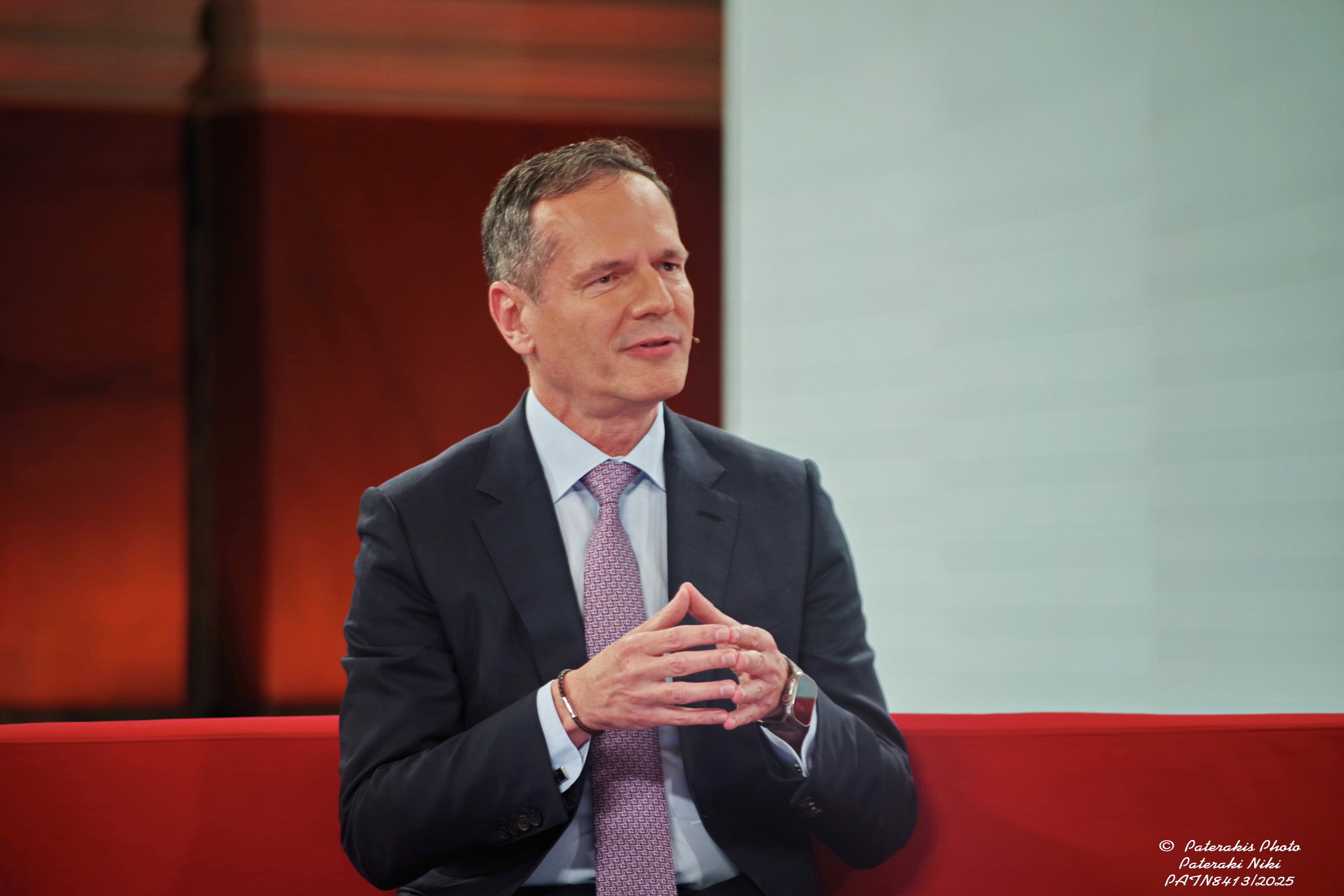The president and CEO of Greece’s Independent Power Transmission Operator (Admie) Manos Manousakis described the recent developments in cross-border energy interconnections as a positive step forward for regional energy security.
Speaking at the 5th OT Forum on Wednesday, he welcomed the announcement by Israeli authorities regarding the planned signing of an agreement by the end of the year for the Cyprus–Israel segment of the Great Sea Interconnector.
“As the project’s implementing agency, we were already aware of this,” said Manousakis.
“Israel, as an energy ‘island,’ takes the project very seriously because it directly concerns its energy security,” he added.
He also also said that “it is very encouraging that the Israeli Prime Minister himself presented it as a matter of national energy security”.
Regarding a second interconnection between Greece and Italy, he added that an agreement with Italy’s transmission operator Terna is expected to be signed soon, sharing the regulated asset base evenly at 50 per cent each.
The president and CEO of Admie also addressed the growing challenges facing Greece’s power system due to the rising penetration of renewable energy sources.
Referring to the recent major blackout in the Iberian Peninsula, Manousakis said it represented a “societal issue of European dimensions,” one to which Greek authorities responded swiftly, particularly given the rapid increase in green energy’s share in the domestic energy mix.
He noted that Greece now operates approximately 15.8 gigawatts (GW) of renewable energy capacity, up from 10.8 GW in 2023.
Photovoltaic systems connected to Admie’s high and ultra-high voltage network have doubled to 7 GW, from 3.5 GW, in just two years.
Given these developments, he said, “managing the power system is becoming increasingly difficult, as the energy landscape shifts roughly every six months due to the continuous growth of renewable generation capacity”.
Beyond curtailing green energy on days of very high production and low demand, the Admie chief highlighted two further measures that need to be implemented by this autumn to ensure system stability under these evolving conditions.
The first measure concerns the technical capability of Aggregators of Renewable Energy Sources (FoSE) to control the groups of units they represent as if they were a single entity, modulating output according to their offers in the electricity market.
He explained that this would allow these energy groups to function collectively as dispatchable units within the grid, eliminating the need for manual interventions for numerous parks currently connected to the distribution network.
The second measure involves enabling remote control of smaller energy parks by the distribution network’s Control Centre, an initiative that the Hellenic Electricity Distribution Network Operator (DEDDIE) is already pursuing intensively.
These two technical measures require the installation of equipment that can receive and execute setpoints for the specific units involved.
This would allow for gradual modulation of energy output, in contrast with the current approach of full disconnection of parks.
Manousakis stressed that renewable sources are not to blame for potential blackouts, but managing the grid must include full oversight of all renewable units to minimise the risk of system collapse.
He also underlined the need for transmission projects to guarantee safe electricity supply, especially for the Attica region.
He pointed to the necessity of building a new ultra-high voltage centre in Argyroupoli, a project that was previously cancelled due to local opposition.
He argued that the development of the Hellinikon area and the increasing demand from cold ironing facilities at ports and marinas will significantly raise electricity needs.
Manousakis cited the delayed Megalopolis–Patras ultra-high voltage line as another example of how local objections have prolonged energy insecurity in the Peloponnese and increased project costs for consumers.
“We need to reflect on the importance of secure power supply,” he said.
He also referred to other ongoing projects, including the Corinth–Attica and Chania–Damasta (Heraklion) ultra-high voltage lines, which face opposition but are critical for the safety of electricity supply and proper system operation.
Manousakis touched on Admie’s investment programme, which he said is progressing very satisfactorily.
The interconnection of the southwest Cyclades is nearing completion, while new links to the Dodecanese and northeastern Aegean are moving forward.
He expressed hope that EU financing tools, such as the NSRF and the Decarbonisation Fund, will support the smooth execution of these investments.
Manousakis also emphasised the priority Admie places on its digital transformation. He described it as essential for system maintenance and operation and said it would form a central pillar of Admie’s 2025–2028 strategy.
He further stated that significant investments will follow, aimed at creating a comprehensive Digital Maintenance Centre, digitising and securing critical electricity infrastructure, and integrating Artificial Intelligence into multiple aspects of Admie operations.






Click here to change your cookie preferences